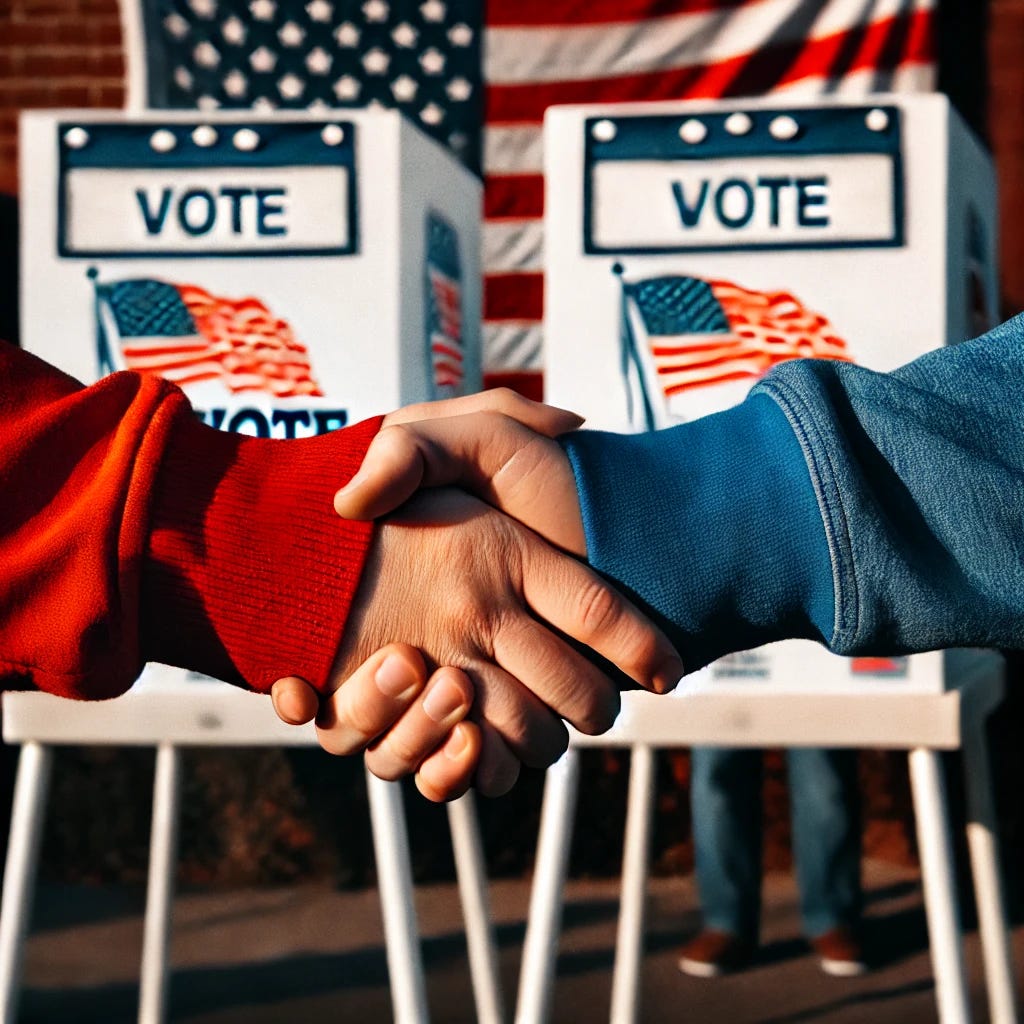This article was first published in the November 6, 2024, Owatonna People’s Press. I wrote it the day before the election, for publication the day after. Fortunately, the results of the presidential election were decisive, and we haven’t heard accusations of fraud or election interference. Close elections will come again, and public perceptions around election integrity remain a concern, making this an important time to address these issues proactively.
As I write this column, the election hasn’t happened yet. By the time you read it, the votes will be cast, and we may—or may not—know who our next president will be. I can’t help but wonder: What will the mood be? Will there be relief, uncertainty, or a bit of both? So many people have told me, “I’ll just be glad when it’s over.” But will it really be over? Beyond the exhaustion from campaign ads, there’s a deeper anxiety—a need to feel we can collectively trust the process.
Braver Angels has been working on this issue since 2020. Earlier this year, the organization published the Trustworthy Elections Report, a comprehensive look at how we can protect the integrity of our elections. The report is the result of three years of dialogue, involving 26 workshops held across the country, each with a balanced group of Red (conservative-leaning) and Blue (liberal-leaning) participants. Only the values, concerns, and solutions that received unanimous support were included in the final report—a rare feat in today’s polarized environment.
One of the report’s guiding principles is straightforward: “Voting should be easy; cheating should be hard.” This phrase gets at a polarity—a dynamic where two equally important, seemingly opposing needs must coexist for the best result. Here, that means elections must be both accessible and secure, ensuring everyone can vote while safeguarding against fraud. If we focus too much on one and neglect the other, the integrity of our elections is at risk. Only when elections are both accessible and secure will we get outcomes that are fair and universally respected. While we may disagree on policies, I think we can all agree on this: we need an election process we can trust with results we can accept as legitimate.
Accessibility means ensuring every citizen, regardless of income, location, or work schedule, can easily cast a vote. Proposals like making Election Day a national holiday and offering no-excuse absentee ballots make participation possible for everyone, reinforcing our shared belief that every voice should count.
Security, on the other hand, ensures that votes are cast legitimately and counted accurately. Measures like bipartisan poll watchers and verifiable voter IDs help fulfill this need, reassuring those that are skeptical that every ballot is secure.
With both accessibility and security, we create a system that is inclusive and credible. We don’t have to compromise one for the other; instead, we can create a system that is open to all while rigorous enough to withstand scrutiny. Braver Angels’ recommendations promote a process where skepticism is constructive, not destructive, and where results are trusted because they’ve been transparently earned.
The Trustworthy Elections Report presents 23 specific solutions across seven key areas, including fair and equal access to voting, verifiable voter identity, transparency and accountability, redistricting reform, confidence in vote counting, election security, and the peaceful transfer of power.
Roger Warehime is the Blue co-chair for the local Braver Angels Alliance and author of the Substack publication Polarity Perspectives (polarityperspectives.substack.com). The views expressed here are his own and not necessarily those of Braver Angels or any other organization with which he is involved
.




